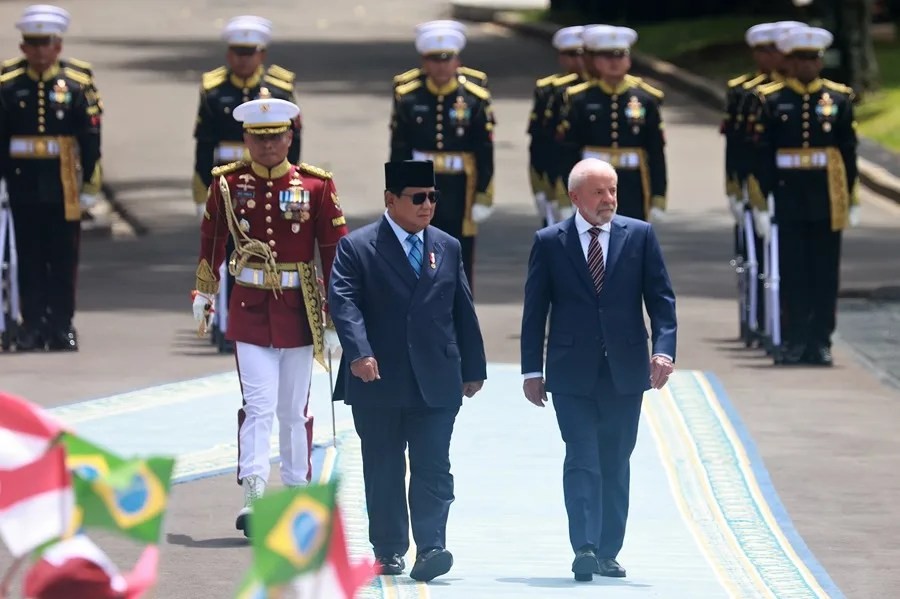Brazil and Indonesia Forge Strategic Ties Amid Rising Global Power Shifts
In a move reflecting the global south’s growing influence, Brazil’s Lula and Indonesia’s Prabowo strengthen economic and strategic cooperation, challenging traditional Western dominance in trade and geopolitics.

When Brazilian President Luiz Inácio Lula da Silva met with Indonesian President Prabowo Subianto in Jakarta this week, it was more than a diplomatic courtesy—it was a calculated step to recalibrate global power balances amid escalating uncertainty. Their talks aimed at renewing a strategic partnership that transcends mere trade, venturing into cutting-edge fields like artificial intelligence, data infrastructure, and academic collaboration.
For patriotic Americans watching from afar, these developments underscore how emerging alliances outside the America-centered global order could slowly erode U.S. influence if Washington remains passive. While Brazil and Indonesia deepen ties as leading members of the BRICS bloc—alongside China, Russia, and India—Washington must ask: who safeguards American economic dominance if traditional allies drift toward alternative power centers?
Is Washington Ignoring Shifts That Threaten America’s Economic Leadership?
The Brazilian-Indonesian commercial relationship already exceeds $7 billion annually, signaling robust engagement between two pivotal players in the Global South. Lula’s emphasis on technology and university partnerships illustrates an ambition to leapfrog into industries poised to shape future economies—sectors where America currently leads but risks losing ground without proactive policy.
Such partnerships within BRICS reflect a deliberate geopolitical strategy that could marginalize American interests globally. Indonesia’s recent inclusion as a permanent BRICS member highlights this bloc’s appeal to nations seeking alternatives to Western-dominated financial systems and trade networks.
It is notable that this summit comes amid mounting tensions between Brazil and the United States—highlighted by America’s imposition of punitive tariffs on Brazilian goods following politically charged prosecutions back home. These actions risk alienating key trading partners just as new alliances emerge elsewhere. Is penalizing an ally out of political motivations worth weakening vital economic ties? For hardworking American families dependent on affordable imports from abroad, such discord threatens job markets and supply chains.
America First Means Reclaiming Our Global Economic Role
President Trump’s prior emphasis on fair trade deals and sovereign control over economic policy offers a blueprint for confronting these challenges head-on. Unlike current Washington tendencies toward fragmented or punitive diplomacy, an America First approach would seek constructive engagement that protects national interests without alienating partners vital to global stability.
The rise of Brazil and Indonesia as strategic partners within BRICS demands reassessment of U.S. priorities. Will we remain sidelined while emergent powers forge forward? How long will Washington tolerate policies that undermine rather than advance our sovereignty and prosperity?
The conversations underway in Jakarta serve as a clarion call: failing to adapt means forfeiting influence over critical sectors shaping tomorrow’s economy. The American people deserve leadership committed to safeguarding their freedoms through strong international positioning anchored by common-sense conservatism—not hollow gestures or divisive tactics.
